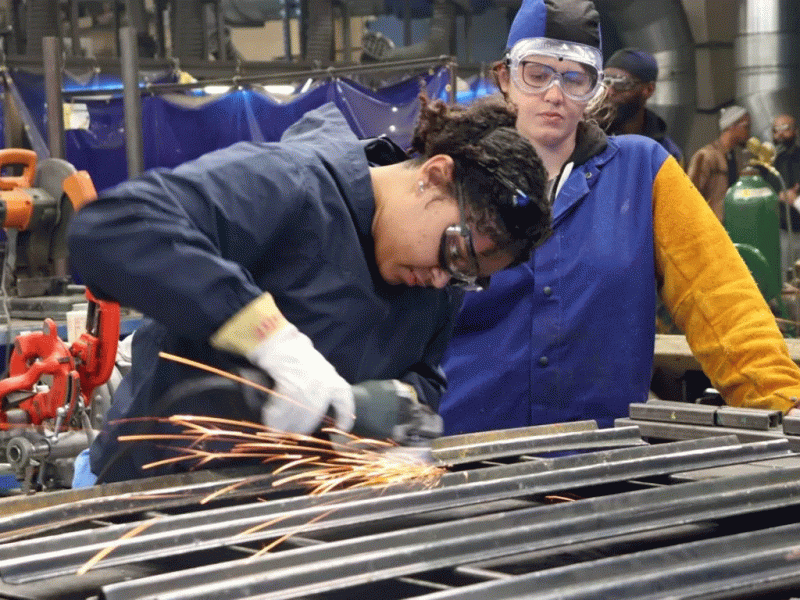Small businesses need to be proactive in investing in skills development to maintain productivity and competitiveness to secure their post-Brexit future.
While negotiations about Brexit are still underway, and the future remains nebulous, there will be some impact to levels of employment and wages in the UK, amplified by the Covid-19 pandemic. Broadly, there are two polarised views as to what Brexit might mean:
1) The reduced free movement of people will drive wages higher as businesses need to attract and retain workers, particularly in labour-intensive jobs.
2) Lower investment in the UK following Brexit will reduce wages, as EU workers leaving the UK will result in lower demand for goods and services.
In the face of such ambiguity about the future, both in terms of navigating Covid-19 restrictions and preparing for post-Brexit realities, it’s a real challenge for small businesses to remain proactive and future-focussed.
Media headlines would suggest that many EU citizens who are (or at least were) searching for work in the UK are targeting unskilled, or lower skilled jobs. Meanwhile businesses in retail and hospitality report that they are struggling to attract staff. While Covid-19 is having a negative impact on the hospitality industry, the longer-term staffing implications remain to be seen.
Many EU migrant workers tend to hold higher qualifications than their UK counterparts, yet despite the education gap, there are reports that EU migrant workers tend to receive comparatively lower pay. Could this mean an increase in wages to attract British workers? There is a perception that British workers are reluctant to accept jobs that are considered to be in labour intensive industries, e.g. nursing, retail, hospitality etc., which could trigger a wage increase. Alternatively, staffing issues in these industries may result in organisations offshoring to countries with lower wages, and therefore result in lower employment levels in the UK.
It is easy to slip in to ‘wait and see’ mode but, now more than ever, is not the time for complacency. It has been fifty years since the UK service industry outgrew manufacturing and agriculture. But have our skills changed accordingly? Apparently not; it is no secret that there is a ‘skills lag’ in the UK. It takes a long time for workers to be reskilled in response to sector demands. There has already been a reduction in EU citizens migrating to the UK, coupled with an increase of EU citizens leaving the UK.
While Brexit may allow access to skilled workers from outside of the EU, the immediate deficit in knowledge means that we need to get ahead of the game by investing in upskilling our existing workforce. Indeed, as Covid-19 has driven more business interactions online, the need for stronger levels of computer literacy has never been more apparent. Small businesses particularly often lack the expertise to compete with larger organisations who employ people specifically to manage online operations and social media presence. This skills deficit will likely increase the gap between larger and smaller businesses.
Brexit is causing challenges for small businesses and Covid-19 has only aggravated the situation. The uncertainty around timeframes and what the future looks like makes planning difficult. Staff are unsettled as they don’t know where they stand, and the uncertainty makes it difficult for small businesses to guide employees. Maybe nothing will change, maybe everything will. Law firms are speculating on what the impact to employment legislation might be. While in some cases the UK’s employment provision exceeds that of the UK, for example parental leave, some employee benefits could legally be reduced following Brexit, for example working time limits and holiday pay calculations.
Looking to the past, when business face uncertain times, what do they do? They cut costs. What are the first costs to be cut? Often firms see cuts in training and development as easy because they show immediate savings and don’t impact operations, at least not in the short term. Uncertainty about the future can fuel workplace negativity and cause disengagement. Naturally, we expect the worst and it is challenging for small business to provide reassurance without knowing what the future holds. Investing is skills, however, might be a way of demonstrating future commitment to employees while simultaneously increasing organisational resilience, productivity and competitiveness.
Dr Maranda Ridgway, Senior Lecturer in Human Resources Management, Nottingham Business School, Nottingham Trent University
